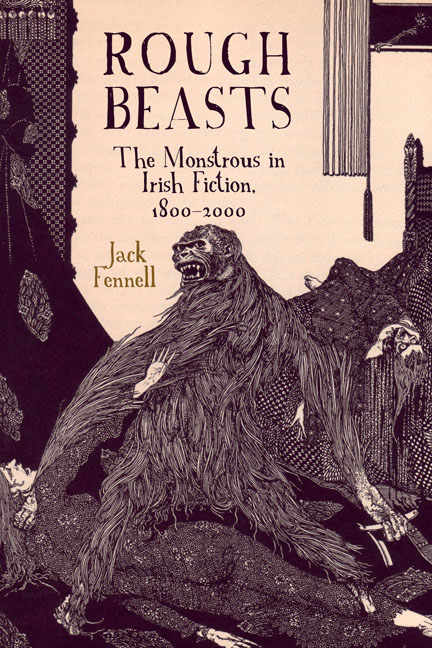Book contents
- Frontmatter
- Contents
- Acknowledgements
- 1 Introduction: In Defence of Fear
- 2 We Dare Not Go A-Hunting: Fairies, Deep Time, and the Irish Weird
- 3 Harbingers of Hunger: Famine, Cannibalism, and Hunger-Demons
- 4 From Lore to Law: Malevolent Magic and Spiritual Warfare
- 5 Ghosts, Narrative, and Noumenal Reality
- 6 Just Sign Here: Faustian Pacts, Demons, and Chaos
- 7 The Undead Generations: Zombies, Vampires, and the Corporeal Undead
- 8 Breeding Breaks Out: Shape-Shifters, Cryptids, and Cunning Animals
- 9 Haunted Spaces and Monstrous Lairs
- 10 Conclusions
- Bibliography
- Index
5 - Ghosts, Narrative, and Noumenal Reality
- Frontmatter
- Contents
- Acknowledgements
- 1 Introduction: In Defence of Fear
- 2 We Dare Not Go A-Hunting: Fairies, Deep Time, and the Irish Weird
- 3 Harbingers of Hunger: Famine, Cannibalism, and Hunger-Demons
- 4 From Lore to Law: Malevolent Magic and Spiritual Warfare
- 5 Ghosts, Narrative, and Noumenal Reality
- 6 Just Sign Here: Faustian Pacts, Demons, and Chaos
- 7 The Undead Generations: Zombies, Vampires, and the Corporeal Undead
- 8 Breeding Breaks Out: Shape-Shifters, Cryptids, and Cunning Animals
- 9 Haunted Spaces and Monstrous Lairs
- 10 Conclusions
- Bibliography
- Index
Summary
In Uneasy Freehold (1942), filmed as The Uninvited in 1944 and subsequently republished under that title, Dorothy Macardle tells an apparently straightforward ghost story that reveals itself to be both a distillation of such tales and a wry, metafictional commentary on them. The plot follows siblings Roderick and Pamela Fitzgerald as they move to Devon from London: Roddy is getting over the breakup of a manipulative relationship, and is hoping to make some progress on his book on censorship in England, while Pamela needs to recuperate from six years of nursing their father until his death, an experience that has caused her exuberant personality to change (5–6). In the north Devonshire town of Biddlecombe they find a house that appears to have been abandoned, but which appeals to them in every way. They purchase it from Commander Brooke and his granddaughter Stella, who are initially reluctant to sell: Stella is emotionally attached to the house, as it once belonged to her parents, while the Commander has a more macabre reason – except for one brief period, the house has been unoccupied for fifteen years (13), and the last tenants to attempt living there left in a hurry six years ago, having “experienced disturbances” (17). The Fitzgeralds insist on moving in anyway, and befriend Stella, who turns out to be the focus of these supernatural disturbances.
Because Macardle's execution of the plot demonstrates a keen understanding of the inner workings of ghost stories, throughout this chapter I will refer to The Uninvited to discuss each aspect. Macardle, a feminist and committed Anti-Treatyite best known in Ireland today as the author of The Irish Republic (1937), inevitably filters her ghosts through her own political convictions and philosophical beliefs, and this commentary on the politics and social mores of the time will also form part of this discussion.
The Invisible and Inexplicable
Every culture around the world has its own tradition of ghost stories, and the sensation of being haunted is widespread enough that it is accepted as a real phenomenon: the bone of contention, of course, is whether this phenomenon is a natural or supernatural one. On the one hand, there are those who believe that ghosts are real and can interfere with the living; on the other, there are people who dismiss the supernatural and assert that the cause of ‘haunting’ must be environmental, biological, or psychological.
- Type
- Chapter
- Information
- Rough BeastsThe Monstrous in Irish Fiction, 1800–</I>2000, pp. 99 - 128Publisher: Liverpool University PressPrint publication year: 2019



